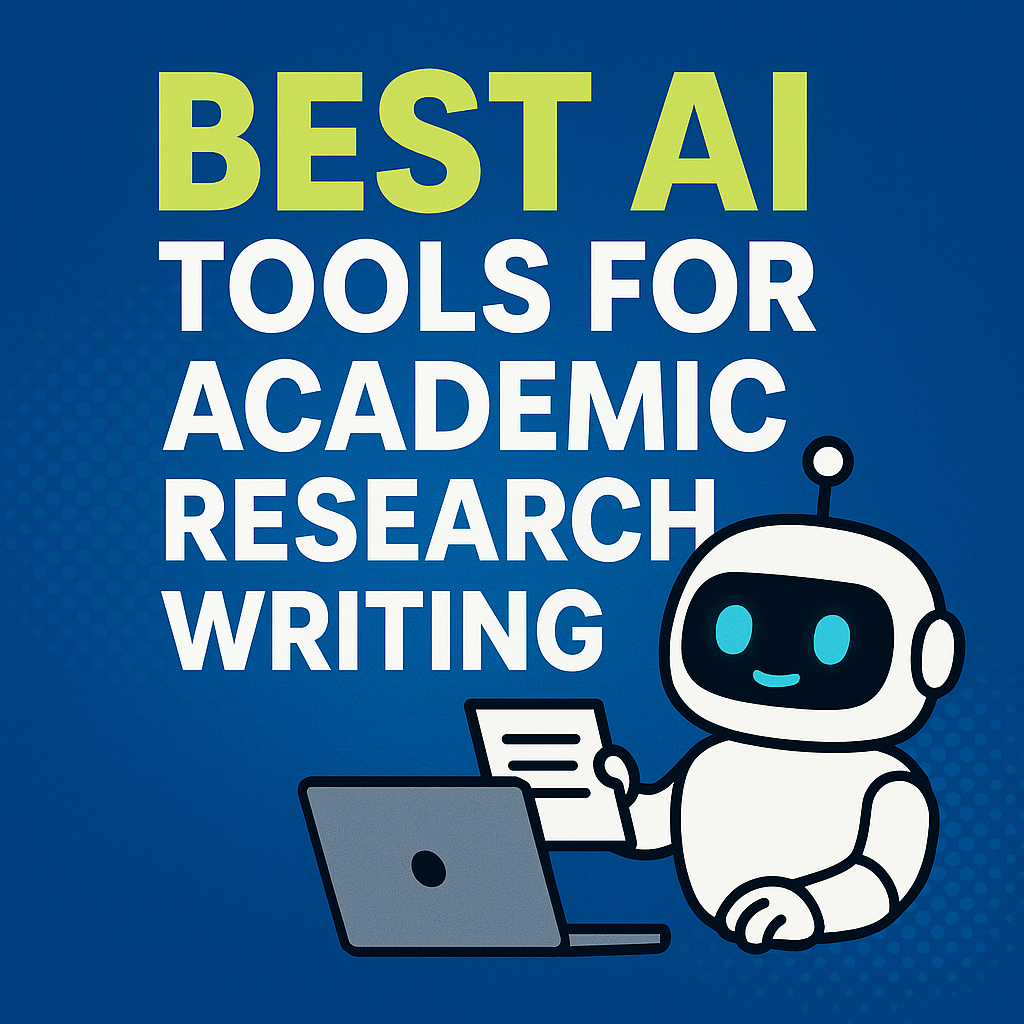AI
The Best AI Tools for Academic Research Writing in 2025: A Student & Researcher’s Guide

Academic research writing can feel like climbing a mountain—daunting, time-consuming, and sometimes overwhelming. But what if you had a smart assistant to help you every step of the way? That’s where AI-powered writing tools come in.
Whether you’re drafting your first research paper, polishing a thesis, or struggling with citations, these tools can save you hours of work while improving the quality of your writing.
In this guide, we’ll break down the best AI tools for academic research writing—based on real-world use, Reddit recommendations, and hands-on testing.
Why Use AI for Academic Research?
AI tools aren’t about replacing your work—they’re about enhancing it. Here’s how they help:
✅ Faster Research – Find and summarize sources in seconds.
✅ Smarter Writing – Improve grammar, flow, and academic tone.
✅ Accurate Citations – Auto-generate references in APA, MLA, etc.
✅ Plagiarism Checks – Ensure your work is original.
✅ Overcoming Writer’s Block – Get AI-generated suggestions when stuck.
Now, let’s explore the top tools researchers actually use.
1. ChatGPT (OpenAI) – Best for Brainstorming & Drafting
Great for: Generating ideas, outlining papers, and drafting sections.
Limitations: Can sometimes “hallucinate” facts—always verify critical details.
💡 Pro Tip: Use prompts like:
- “Help me outline a research paper on [topic].”
- “Paraphrase this paragraph in an academic tone.”
2. Elicit – Best for Literature Reviews
This AI acts like a research assistant, summarizing papers, extracting key findings, and even answering questions based on uploaded PDFs.
Why researchers love it:
- Saves hours when reviewing dozens of papers.
- Helps identify gaps in existing research.
3. Scite.ai – Best for Smart Citations
Unlike standard citation tools, Scite.ai shows how a paper has been cited—whether it’s been supported, contradicted, or just mentioned.
🔍 Perfect for:
- Finding high-impact references.
- Strengthening your arguments with verified sources.
4. Jasper AI – Best for Polishing Academic Text
If your writing feels clunky or informal, Jasper can rewrite sentences to sound more professional.
📝 Best for:
- Non-native English speakers.
- Making complex ideas clearer.
5. Consensus – Best for Evidence-Based Answers
Think of it as Google Scholar + AI. Just ask a question (e.g., “Does caffeine improve focus?”), and it pulls answers directly from published studies.
6. Paperpal – Best for Journal Submissions
Designed specifically for academics, Paperpal checks:
✔️ Grammar & style
✔️ Technical terminology
✔️ Journal formatting requirements
Used by: Researchers targeting peer-reviewed publications.
Free vs. Paid Tools: Which Are Worth It?
| Tool | Free Plan? | Best Paid Feature |
|---|---|---|
| ChatGPT | Yes (GPT-3.5) | GPT-4 for deeper analysis |
| Elicit | Limited queries | Full literature review help |
| Scite.ai | 7-day trial | Unlimited citation checks |
| Grammarly | Basic checks | Tone & clarity upgrades |
💸 Budget pick: Zotero (free + open-source) for citation management.
What Reddit Researchers Say
Popular combos from r/AskAcademia and r/GradSchool:
- “ChatGPT + Scite.ai = Draft + Verify”
- “Elicit cut my lit review time in half.”
- “Grammarly + Paperpal saved my thesis submission.”
Final Recommendation: Match the Tool to Your Need
- Starting from scratch? → ChatGPT for drafting.
- Drowning in papers? → Elicit for summaries.
- Need bulletproof citations? → Scite.ai.
- Last-minute polish? → Grammarly + Paperpal.
Have you tried any of these? Share your favorite in the comments! 🎓
(Updated April 2025 with latest AI features.)
Why Trust This Guide?
- Based on real academic user feedback (Reddit, Twitter/X).
- Hands-on testing of free & paid plans.
- Focus on tools that actually save time (not just hype).
Now go write that paper—with a little AI help! ✍️🤖


















